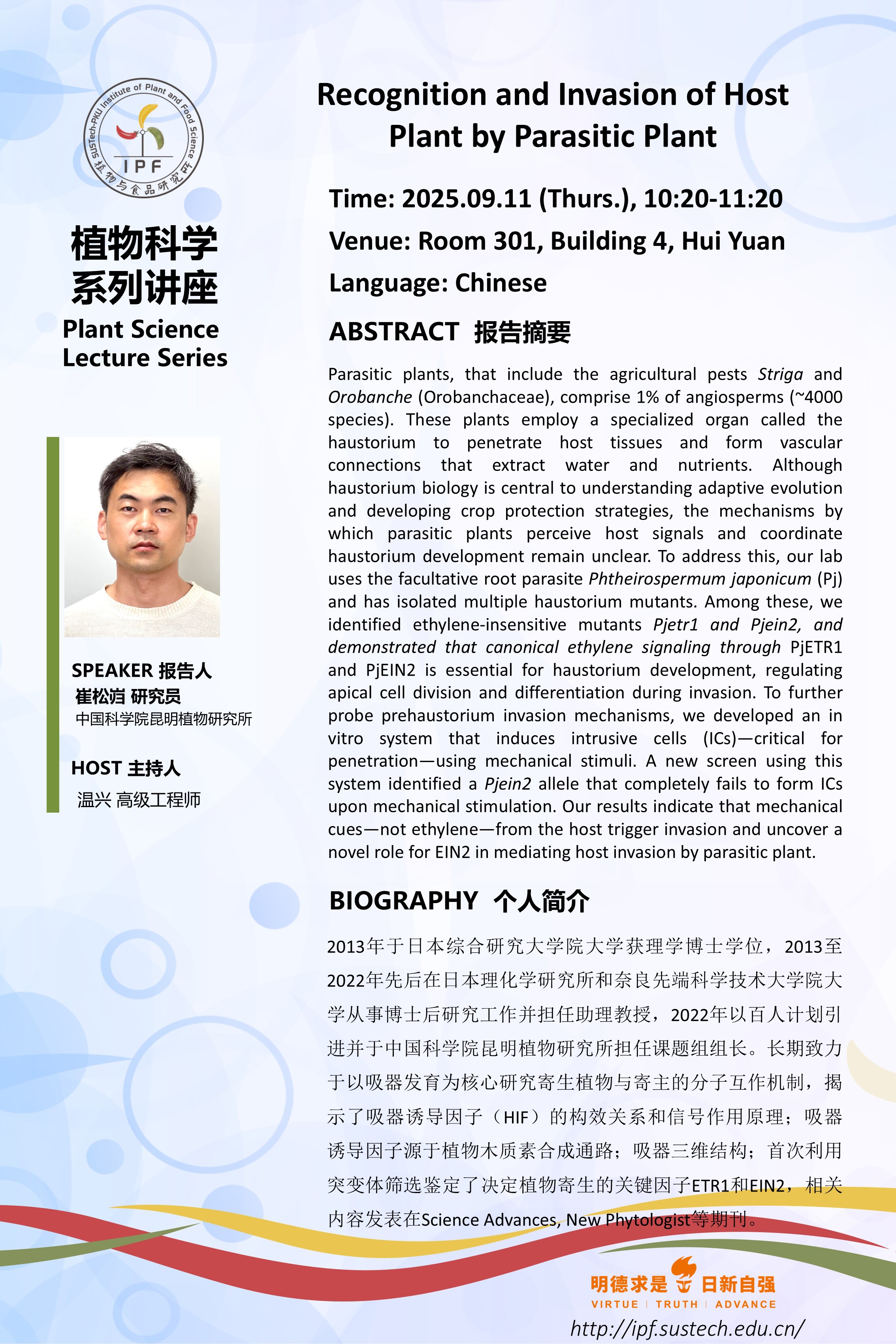
主讲人: 崔松岿 研究员(中国科学院昆明植物研究所)
时间: 9月11日(周四)10:20-11:20
地点: 慧园4栋301
题目:Recognition and invasion of host plant by parasitic plant
主讲:崔松岿 研究员(中国科学院昆明植物研究所)
时间:9月11日(周四)10:20-11:20
会议地点:慧园4栋301
报告摘要:Parasitic plants, that include the agricultural pests Striga and Orobanche (Orobanchaceae), comprise 1% of angiosperms (~4000 species). These plants employ a specialized organ called the haustorium to penetrate host tissues and form vascular connections that extract water and nutrients. Although haustorium biology is central to understanding adaptive evolution and developing crop protection strategies, the mechanisms by which parasitic plants perceive host signals and coordinate haustorium development remain unclear. To address this, our lab uses the facultative root parasite Phtheirospermum japonicum (Pj) and has isolated multiple haustorium mutants. Among these, we identified ethylene-insensitive mutants Pjetr1 and Pjein2, and demonstrated that canonical ethylene signaling through PjETR1 and PjEIN2 is essential for haustorium development, regulating apical cell division and differentiation during invasion. To further probe prehaustorium invasion mechanisms, we developed an in vitro system that induces intrusive cells (ICs)—critical for penetration—using mechanical stimuli. A new screen using this system identified a Pjein2 allele that completely fails to form ICs upon mechanical stimulation. Our results indicate that mechanical cues—not ethylene—from the host trigger invasion and uncover a novel role for EIN2 in mediating host invasion by parasitic plant.
个人简介: 博士生导师,2013年于日本综合研究大学院大学获理学博士学位,2013至2022年先后在日本理化学研究所(RIKEN)和奈良先端科学技术大学院大学(NAIST)从事博士后研究工作并担任助理教授,2022年以百人计划引进并于中国科学院昆明植物研究所担任课题组组长。长期致力于以吸器发育为核心研究寄生植物与寄主的分子互作机制,揭示了吸器诱导因子(HIF)的构效关系和信号作用原理;吸器诱导因子源于植物木质素合成通路;吸器三维结构;首次利用突变体筛选鉴定了决定植物寄生的关键因子ETR1和EIN2,相关内容发表在Science Advances, New Phytologist,Plant Physiology,Plant Communications等期刊。